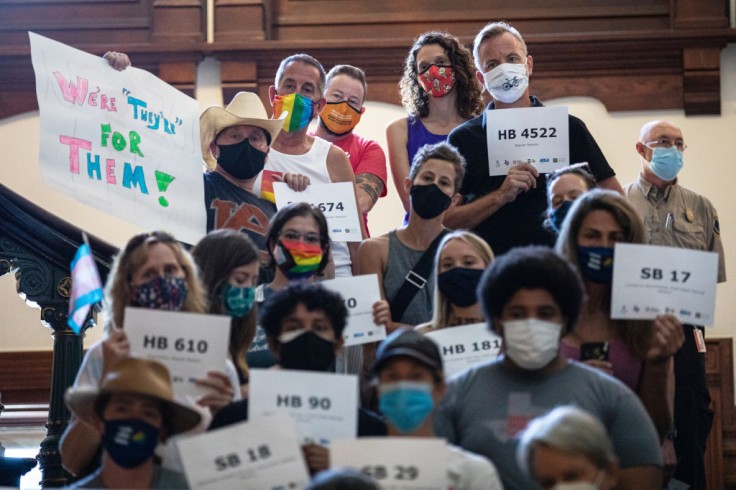
A newly proposed law in Missouri, the Parents Bill of Rights, was halted this week to add a further amendment, which is the transgender bathroom restrictions.
The amendment will prohibit any transgender student from accessing restrooms and locker rooms that are not aligned with their biological identity.
The amendment, spearheaded by former committee chairman Senator Andrew Koenig, has not only ignited passionate debates but has also led to the removal of Koenig and other members of the Senate's Freedom Caucus from their committee positions.
Amendment of the Missouri Parents Bill of Rights
During an exhaustive nine-hour session, Senator Koenig's eleventh-hour inclusion of the bathroom amendment prompted intense discussions.
Advocates, including Senator Nick Schroer, contend that aligning restroom usage with biological sex addresses a statewide concern, underscoring the necessity of such regulations.
However, the contentious nature of the debates ultimately resulted in the removal of Koenig and fellow caucus members from their committee roles, marking a significant shift in leadership dynamics.
Amid the fervent debates, Senator Greg Razer, a Democrat from Kansas City, introduced amendments aimed at enhancing protections for LGBTQ students.
Razer's proposals involve the Missouri Department of Social Services in cases where parents are notified about their child's LGBTQ status, aiming to mitigate potential risks of homelessness or abuse.
Republican Senator Rick Brattin opposed these amendments, dismissing them as redundant and emphasizing the principle of presuming parental innocence.
This clash of perspectives highlights the intricate balance between LGBTQ rights and parental concerns embedded within the proposed legislation.
The original proposed Missouri Parents Bill of Rights states that it is the responsibility of the school to notify the parents of a student within 24 hours if they have seen the minor experiencing some type of discomfort or confusion about their documented identity.
The bill also states that parents will also have the right to be immediately informed if their child wishes to change their pronouns.
Additionally, it is also proposed in the bill that school staff and faculty in Missouri are not allowed to encourage a student under the age of 18 to adopt any other gender identity or sexual orientation.
Bill Advances Amidst Opposition: Implications for LGBTQ Students
Despite opposition from Democratic committee members and Senator Elaine Gannon, Koenig's amended bill, mandating swift reporting to parents on students' discomfort or desire to change pronouns, successfully navigated through the committee.
The legislation is now under the oversight of the new committee chairperson, Senator Curtis Trent.
Lingering concerns persist among opponents, who fear potential adverse consequences for LGBTQ students in Missouri, as the bill progresses through the legislative labyrinth.
As the Show-Me State grapples with the convergence of parental rights, LGBTQ student protections, and the intricacies of transgender bathroom restrictions, the contentious nature of the Parents Bill of Rights debate intensifies.
This newly proposed bill in Missouri does not veer far from other legal restrictions other states have imposed on their area targeting the LGBTQ community, most of these stringest restrictions are found in Republican-led areas.
These transgender bathroom restrictions prohibit them from using bathroom facilities such as shower rooms, locker rooms, changing rooms, and other sex-segregated spaces that is not in accordance with their biological identity.
Some of these policies apply to K-12 school settings, while others apply more broadly to government-owned buildings and spaces.
The ongoing deliberations echo the diversity of perspectives within the state's legislative body, illustrating the formidable challenge of forging a consensus on sensitive issues that profoundly impact the rights and well-being of students across Missouri.